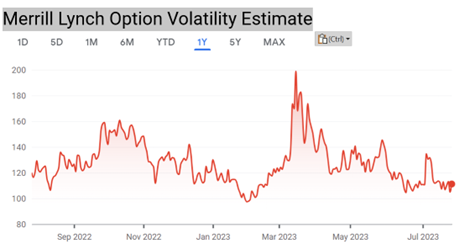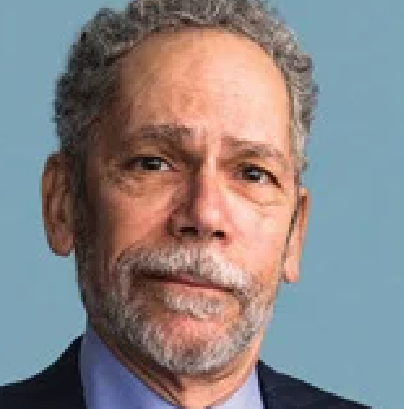Early Alert: Government Shutdown May be the Next Challenge

Just when you thought the weather had cleared. . .
It’s been a stressful couple of years for public fuds investors. First it was the Covid-19 lockdown that froze the financial markets, then the revenue and spending distortions caused by the trillions of dollars of Federal and state Covid relief, the sharp rise in interest rates fueled by the Federal Reserve’s restrictive monetary policy, and the threat of a default on US government debt. Cap it off with the widely forecast 2023 recession and no wonder portfolio managers endured sleepless nights.
The macro outlook seems to have calmed of late as inflation eases, the Federal Reserve appears to be at or near the end of its tightening cycle and most economists (and the International Monetary Fund) are now of the view that the US economy will avoid recession later this year.
Maybe. . . just maybe. . .there would be relief from stress and uncertainty as these events receded into the distance.
Another soothing fact: market volatility has recently subsided.

But now the folks in Washington seem to be on the verge of creating a new crisis that would impact investment strategies. As Axios reported, this week It appears increasingly likely that failure to pass spending bills by September 30 will lead to a Federal government shutdown. If so, various streams of Federal aid to state and local governments may be disrupted and cash flow forecasts that are so important to public funds investing will be challenged.
There is a good deal of uncertainty at this point. What we know is that Congress has recessed for six weeks with no agreements on spending, and some Republicans are suggesting at a shutdown would not be so bad.
Bottom line: The debt ceiling fight threatened to disrupt the markets. A shutdown is unlikely to do this as the Treasury will retain authority to pay its bonds. But with Congress out until mid-September, it’s not too soon to begin thinking about contingency plans to build up a cash buffer just in case.
Regulating Collective Funds. . . The Next Act

In May, Gary Gensler, chairman of the Securities and Exchange Commission, spoke to the Investment Company Institute about the then-pending proposal to reform money fund rules. The speech is interesting because he described the regulators’ broader concerns about risks related to other types of collective funds that are not subject to the rules of the Investment Company Act. With the SEC’s action earlier this month to approve new money fund rules the regulatory focus is likely to shift to other segments of the market. Whether that might implicate public funds investment vehicles remains to be seen.
In his speech Gensler specifically referred to short term investment funds and collective funds that are exempt from SEC registration because they are managed by banks for use by certain bank customers.
So what? Gensler cited analysis by the President’s Working Group and the Financial Stability Oversight Council, two entities established after the market crisis of 2008, to identify systemic risk. His point was that in the view of these agencies money market funds are not the only organizations where issues around shareholder dilution and liquidity could trigger a market crisis.
He provided a heads-up that additional regulation could be forthcoming around what the regulators’ view as other potential sources of liquidity and dilution problems. The next act may be bank funds.
Bank-operated collective funds are outside of the authority of the SEC but, in his words “we’re in discussions with the bank regulators on these topics.”
To be clear, Gensler did not implicate local government investment pools in his comments. They are also exempt from registration under the Investment Company Act, but their exemption is in a different section of the law.
Nevertheless, one might speculate that LGIPs are not entirely outside of the view of those who are focused on systemic risk.
enuf said.
Briefly noted—
A few weeks ago, we reported on the July 1 go live of FedNow, the 24/7 payment system that the Federal Reserve has developed. FedNow has a Linked-in presence for those who may want to be early connectors. As of today, it reports 396 followers. Perhaps they will be the early adaptors.
You really don’t want to read the 1087 pages of proposed bank capital rules that were released for comment this week by the Federal bank regulators. Unless you are a lawyer, bank executive or a bank stock analyst. The point is that the regulators have taken the next step in making changes to the rules under which banks operate and, as we have noted in several other Beyond the News posts, we think the impact on public funds investors will be
- bank consolidation that will change the deposit/investment playing field, and
- changes in the economics of banking which will impact the competitiveness of bank deposit rates.
Nothing immediate. It will take years but the tectonic shift in the financial services industry continues.


